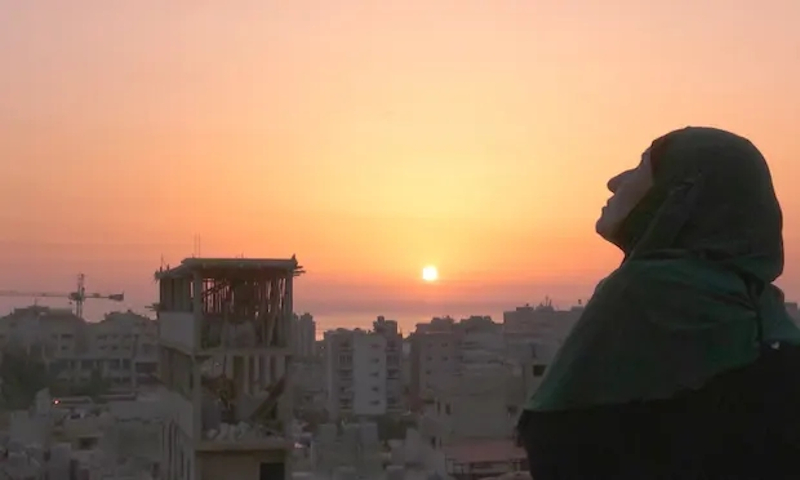Directors – Sarah Beddington, Susan Simnett – 2021 – UK – Cert. U – 84m
***1/2
A friendship between British artist Sarah and Palestinian refugee Fadia sparks the former into a search for a tree in the latter’s village to which she is currently unable to return – out in UK cinemas on Friday, August 5th
Sometimes less is more. This takes what is essentially a very simple idea and runs with it to its logical conclusion. Fadia Loubani is a Palestinian born and living in Beirut’s Barajneh refugee camp. Her refugee status prevents her from visiting the part of what was then Palestine and now Northern Israel from which her family originally came. Even though the village of Sa’Sa’ is only about 15 miles away, it can only be accessed by a far longer round trip, the final part of which involves crossing a border which her status won’t permit. In this village is her father’s house and a mulberry tree that sits opposite it. If Fadia could achieve one thing in her life, it would be to visit Sa’Sa’ and find both the tree and the house.
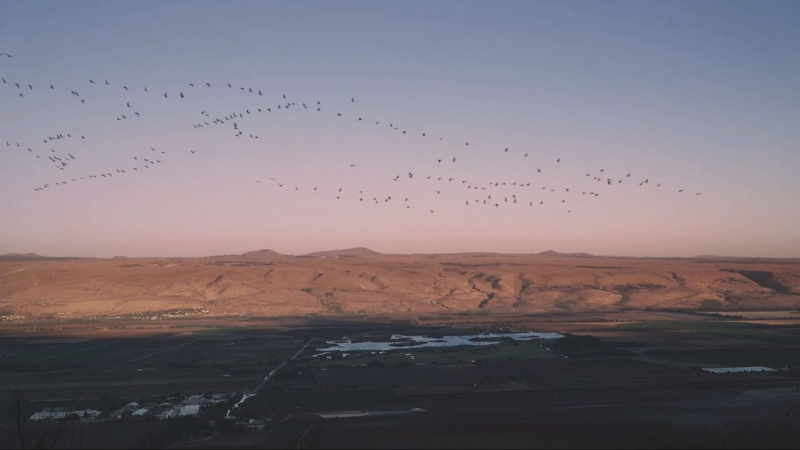
She originally struck up a friendship with Sarah Beddington in a Beirut restaurant, subsequently introducing the artist to the community in her refugee camp. As the camera follows her around the streets, the untidy tangle of telephone wires whenever you look upwards recalls similar elements in South Korea’s very different Parasite (Bong Joon Ho, 2019). Fadia proudly introduces us to the kindergarten she and a number of others have set up, where children are seen being taught about their geographical Palestinian roots. We see her sitting beside one tree and taking great delight in showing her rig for watering another.
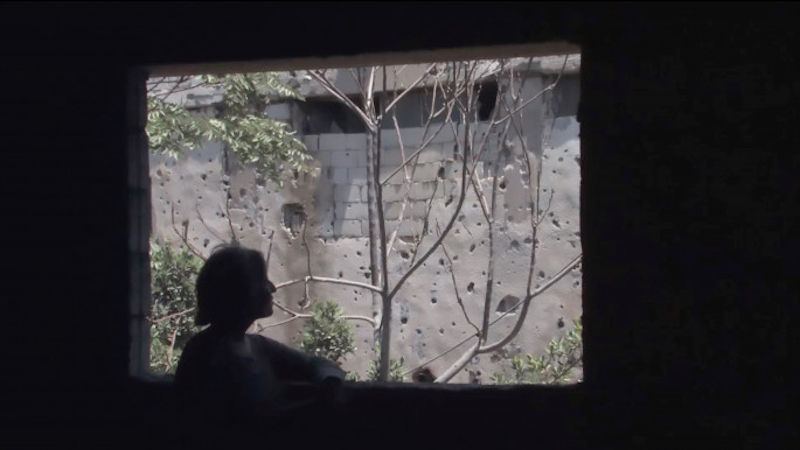
Beddington decides to drive out to the village and find the tree. But the first time she visits, despite communicating on the phone with Fadia during the trip, she can’t locate the tree. All she can find is two men carrying a double-headed dragon which while it may look great on camera doesn’t actually help her very much. She will have to return on a later occasion.
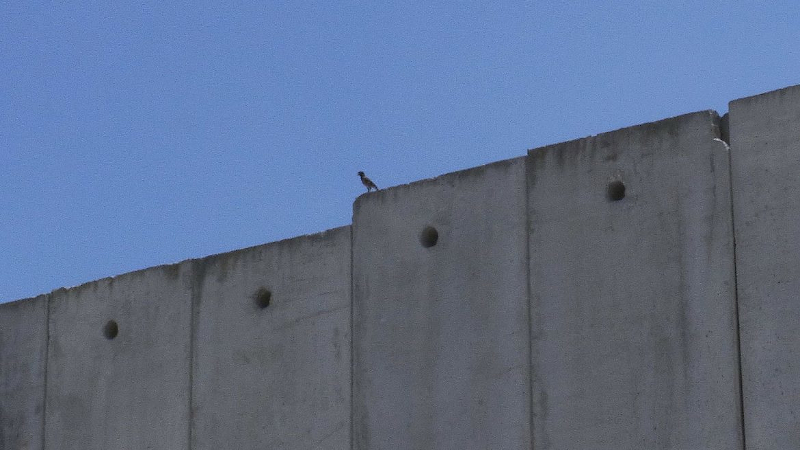
Playing out alongside this narrative of free Brit and restricted Palestinian is material about migrating birds and the scientists who tag and study them. The birds do not have national boundaries: they migrate thousands of miles to a genetically remembered, specific tree regardless of which side of the border the tree happens to be on. One of the scientists who tag the birds says he does so without prejudice: a tagged bird is a tagged bird regardless of whether it was tagged in Israel, the Lebanon, Jordan or anywhere else, and he’ll record the data from any bird that turns up. However, he clearly regrets the fact that he himself can’t access certain locations.
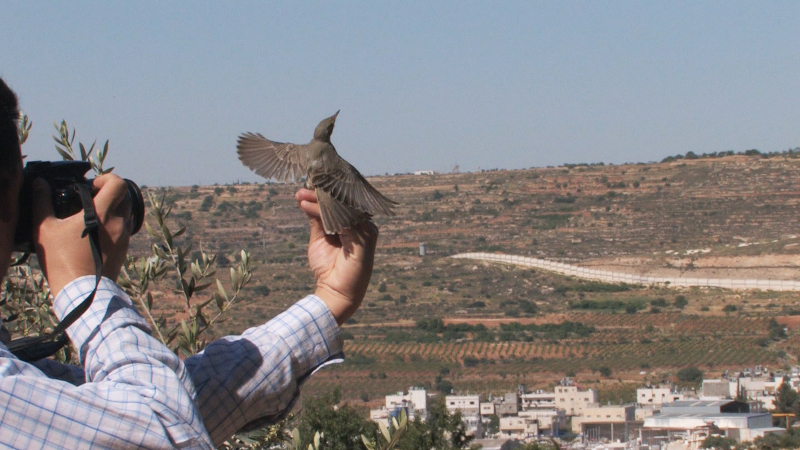
The birds themselves, meanwhile, can travel wherever they please, albeit to a destination decided by instinct rather than will. It’s not hard to make comparisons with different human ethnic groups who are or are not allowed to enter this place or leave that one.
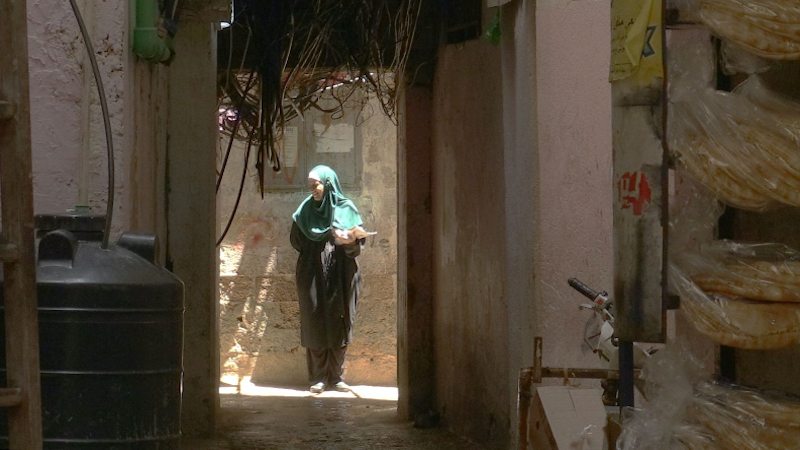
By its simple strategy, this extraordinary and deeply feminine diary film gets right under the skin of what it means to live under restricted geographical access that undermines one’s core identity. If not an especially difficult film to watch, its implications are far-reaching. The universal questions it prompts will rattle around your psyche for quite some time afterwards.
Fadia’s Tree is out in cinemas in the UK on Friday, August 5th.
Trailer:
